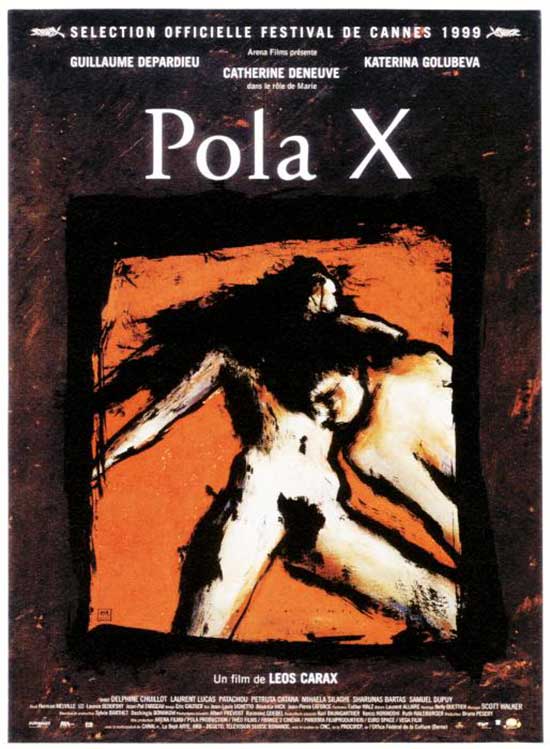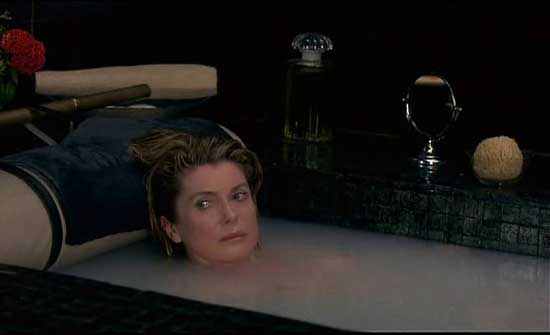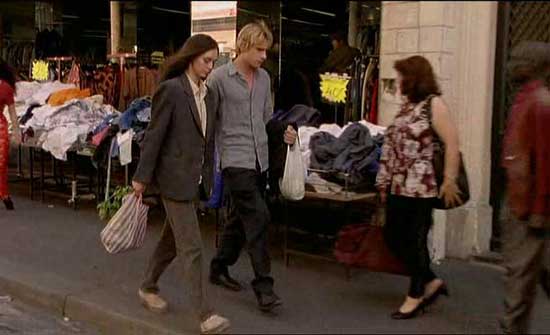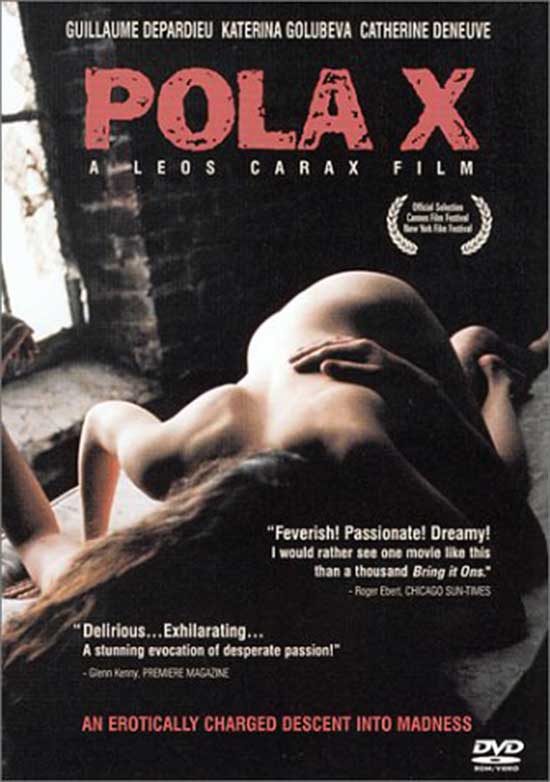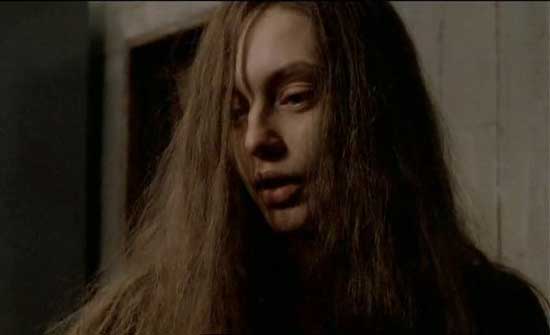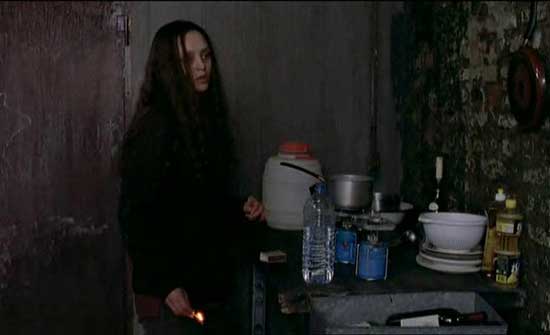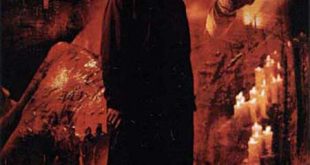SYNOPSIS:
A young writer becomes intrigued with a mysterious dark-haired woman who claims to be his long-lost sister and he begin an unusual relationship with her prompting a downward spiral involving his domineering mother and lovely fiancée
REVIEW:
Pola X is a film by French director Leos Carax (Boy Meets Girl, Mauvais Sang) and written by Carax, Lauren Sedofsky, and Jean-Pol Fargeau (frequent writing partner of Claire Denis; Trouble Every Day, The Intruder, Bastards). This is the story of a young well-to-do novelist named Pierre (the late Guillaume Depardieu, son of Gerard Depardieu; The Apprentices, Les Inseparables) and his fiancée, Lucie (Delphine Chuillot in her first film role; The Woman in the Fifth, Pandorum). After much success with his first novel, which he published under a pseudonym, Pierre is struggling with his sophomore effort when he runs into a mysterious woman, one he feels he has been dreaming of. He finds out that she, Isabelle (the late Yekaterina Golubeva; Twentynine Palms, Three Days), is his half-sister. The fact that they were born of the same father yet have led such drastically different lives – his one of utter privilege, hers one of poverty and despair – upsets the naïve Pierre, and so he sets into motion a plan to abandon all that he has and take his life in a new direction. But things are never as easy as they seem in your pipedreams.
Pierre makes the choice to bail on his upcoming wedding, which of course angers Lucie, but it also upsets his mother, Marie (the legendary Catherine Deneuve; Belle de Jour, Dancer in the Dark, Repulsion), as well as his good friend, Thibault (Laurent Lucas; Calvaire, In My Skin, Alleluia). It’s hard to say for sure the exact reason the two are upset; maybe they think he’s making a mistake, maybe they’re mad at his irresponsible actions, but maybe it’s something deeper.
There are some fairly strong undertones of sexual tension flowing throughout much of this film, and in a variety of directions. Pierre sees nothing unusual about conversing with his mother while she is nude in the bathtub, and refers to her as his sister; their relationship somewhat mirrors that of Raymond and Angele in Erik Canuel’s Cadavres (although those two actually are brother and sister, but the incestuous flirtation is similar). It feels like there might be something more between Thibault and Pierre as well. And moving beyond undertones into facts, Pierre falls for the mystery woman, Isabelle, who introduces herself as his half-sister. Then again, Lucie, his fiancée, is his cousin as well. The veiling and obfuscation of relationships continues when Pierre and Isabelle run away to live in an artist commune, and he says she is his wife, then when Lucie reappears later, he has her tell everyone they are cousins.
Family ties is one theme on display in Pola X, but truth and lies are an even bigger one. More often than not, people seem more content avoiding the truth, and sometimes even chose to ignore it when it’s presented to them. Pierre’s sense of pride about his father is weakened when Isabelle tells how he left her and her mother and she ended up living a very rough life. Pierre is insulted by a cab driver and attacks him, but when the police come and see a well-dressed European male and an “immigrant” cabbie, the aggressor is free to go while the driver is asked to show his papers. When Pierre is offered money to reveal himself as the best-selling author on a TV talk show, fans are disappointed in who he actually is versus who they imagined he was. And most glaringly, when Pierre decides to toss aside his wealth and privilege to go live in poverty, confident this will help him write his next book, he starts being treated differently and can’t believe how horribly people treat him.
Pola X is based on the novel Pierre: or, The Ambiguities by Herman Melville (it was his next novel after something called Moby-Dick). In French, the book’s title is Pierre ou les ambiguites, and “Pola” is an acronym of that. The “X” in the title allegedly comes from the ten drafts that the script went through before it was finished. It is sometimes also seen as an indication of the amount of sex in the movie. There’s a lot, and it is quite graphic, which is where this film falls into the more “extreme” side of cinema. There is also a somewhat shocking ending, but, surprisingly, it’s nowhere near as violent as in the book (the incest and lies are all in there too). But Carax’s film is one that doesn’t even need to throw violence or sex at the audience to grab their attention – this is a very interesting, engaging story with a great cast who all shine in their roles. It has its shocking moments, and they go right along with beautifully shot scenes and fantastic performances. Pola X tiptoes just a little past the two-hour mark, but the running time is hardly noticeable. While there are not many horror elements in the film, this is recommended to anyone interested in the non-horror side of the New French Extremity.
 Horror News | HNN Official Site | Horror Movies,Trailers, Reviews
Horror News | HNN Official Site | Horror Movies,Trailers, Reviews
